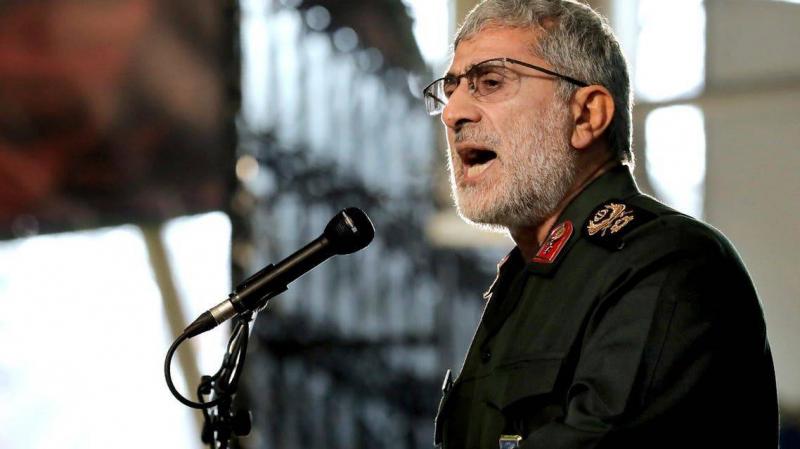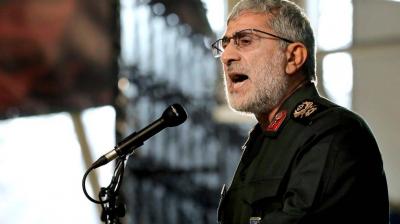The repercussions of the attack on Iraqi Prime Minister Mustafa al-Kadhimi's home, which occurred on November 7, continue amid the disarray of Iranian militias in the country. After Iranian attempts to deny the accusations, the commander of the Iranian Quds Force, Ismail Qa'ani, during a meeting in Baghdad on Wednesday, urged loyal factions to control their forces and those who support them, as their actions harm Tehran's interests in Iraq.
"Accept the Election Results"
In detail, Qa'ani blamed Hadi al-Amiri and Qais al-Khazali, leaders of armed factions in Iraq, for their performance following the recent Iraqi parliamentary election results, according to what was reported by Reuters from an Iraqi militia official and Western diplomats familiar with the meeting. The meeting was held at a political office supported by Iran in Baghdad, attended by a small team that accompanied Qa'ani. Furthermore, the Iranian leader sent a message to Iran-backed Iraqi militias to accept the results of the parliamentary elections held on October 10, where Muqtada al-Sadr won and the Fatah coalition affiliated with Iran-backed armed groups lost.
"Threat to Interests"
Qa'ani also accused the Iran-backed militia leaders in Iraq of mishandling the election's aftermath, claiming that their policies threaten his country's interests. He stated that such "trivial" actions, as he described them, threaten the authority of pro-Iran parties in Iraq, through which Iran has infiltrated various Iraqi circles. It is noteworthy that the Iranian government condemned the attack on al-Kadhimi's residence, which followed protests by its militias in Iraq against the election results. Reports indicated that Iran is conducting indirect negotiations with the U.S. regarding the revival of the nuclear agreement in Vienna, with rising tensions among Iraqi Shiites affecting officials in Tehran.
Campaign of Incitement and Mobilization
The assassination attempt on al-Kadhimi came after a campaign of incitement and mobilization against him, launched by pro-Iran factions within the Popular Mobilization Forces. Officials from the Asa'ib Ahl al-Haq movement, Hezbollah Brigades, and "Sayyid al-Shuhada" accused the Prime Minister of being involved in the clashes that erupted between security forces and supporters of those factions in Baghdad days before the attack, resulting in the death of a protester against the election outcomes held on October 10, 2021. Additionally, Iran-aligned Popular Mobilization Forces had staged protests in the heart of the Iraqi capital two weeks prior to the incident, accusing the government and the electoral commission of fraud in the election results, which showed a significant drop in their popularity and a marked decline in parliamentary seats.




